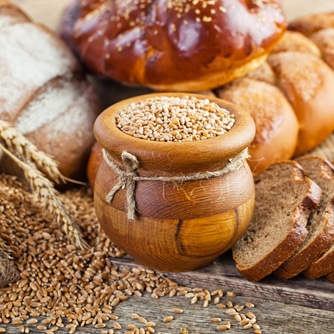A study supported by General Mills Bell Institute of Health and Nutrition and the U.S. Department of Agriculture’s Agricultural Research Service has confirmed a link between increased dietary fiber and weight loss. The study, published in the American Journal of Clinical Nutrition, is part of another study which focuses on the relationship between gut microbiota and a diet rich in whole grains.
Whole Grains vs Refined Grains
Refined grains are made through a process called milling. The fibrous outer layer of the whole grain is removed in a high-heat process. When complete, only the starch, or endosperm, of the plant remains. The milling process is known to remove a large portion of a food’s fiber and nutrition content. Brown rice is a whole grain. White rice is a refined grain.
Previous studies have linked the intake of whole grains fiber with lower blood sugar levels and better insulin absorption. Studies also suggest a high-fiber diet may lower risk of many chronic health conditions.
While there is no recommended daily allowance of fiber intake set by the USDA, the American Dietic Association recommends 20-35 grams per day.
The Study
Eighty-one men and women, between the ages of 40 and 65, participated in the eight-week, single-blind comparative study. For the first two weeks, participants were assigned similar diets, while researchers determined individual calorie needs. In the third week, participants were split into two groups. One group received foods with refined grains, while the other received whole grain products. Both received the same types of food and macronutrient content, adjusted for individual caloric needs.
Participants were instructed to eat only foods provided by the research team. If any food was not consumed, it was returned. Normal physical activity was encouraged.
Researchers recorded statistics on participants’ weight, metabolic rate, blood glucose, fecal calories, and feelings of hunger and fullness.
The Results
When analyzed, the data showed the whole grain group lost about 100 extra calories per day. Researchers believe this is due to a combination of increases in fecal loss and resting metabolic rate. The increased fiber changed the way other foods are digested by the body. Increased fecal loss due to the presence of the extra fiber was factored into the analysis.
Team members noted that whole grain sources used in the study are commercially available. These products are made with whole grain flours. Researchers hypothesize that using whole grain kernels would provide greater benefits.




